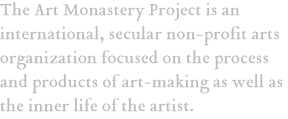The rise of technology
In researching mathematician and philosopher Alfred North Whitehead’s views on monasticism for an upcoming post on the topic, I came across a review in the Global Spiral of David F. Noble’s The Religion of Technology.
Noble claims he has found, in the words of reviewer John Haught, “the ultimate foundations of the modern ‘religion of technology’ in the longing for new creation that ultimately goes back to the Bible, but which assumed a dangerous surge of voltage during the Middle Ages.”
From the summary of The Religion of Technology in Haught’s review:
Monastic otherworldliness, of course, is one expression of what is usually called “religion,” or what the author politely refers to as the quest for “transcendence.” The religious urge to “go beyond” is in Mr. Noble’s estimation a troublesome and ultimately dispensable instinct, leading men to hate women, earthlings to escape from earth, and humans to forsake efforts toward a more “humane” existence.
Instead of being intrinsically inimical to modern science, however, the atavistic religious urge to transcend the world, as mediated to modernity by monks of the Middle Ages, is actually science’s very nursery. Had its founders not been energized by intense religious longing for a better world than this one, Noble contends, it is doubtful that they would ever have embarked upon their journeys of discovery. Nor would modern technological adventurism have led this planet to the brink of disaster.
I can’t help but draw parallels and (more often) antitheses between The Religion of Technology and In Otherhood.
Where Noble seems to think that monasticism is just a rarified form of religion doing what it does best—escaping from the world—I would argue that monasticism is a side-project of religion that went right, and became the rarified form of what the people like Jesus (before there was a religion about him) were talking about, and that this has everything to do with understanding our minds as they are and embracing the world as it is.
Noble seems to say that it is monasticism that got us into this mess; religion in its dangerous monastic form caused the industrial and technical progress that sparks wars, impoverishes people and is destroying the planet. I, on the other hand, would say that while monasticism may have paved the way for Enlightenment rationalism (“In Science and the Modern World, Alfred North Whitehead… argued that medieval theology prepared the soil for modern science’s deep trust in the rationality of nature,” Haught points out), it did not cause those negative aspects of the modern worldview (aspects which may nonetheless have everything to do with a desire for escape, for transcendance from the mundane).
And I predict that secular monasticism (that is, secularly spiritual or interfaith monasteries within organized contemplative traditions free from the historical messiness and dogmatic burden of any specific religion) will drive technology and give it humanity in the future.
Haught points out more trouble with Noble’s argument.
“Moreover, while the book is nicely written and compellingly presented, the author’s main thesis is logically flawed and theologically simplistic. Mr. Noble does not disguise the radical secularism that underlies his entire project… In addition to being an egregious example of what logicians call the genetic fallacy–evaluating something on the basis of its origins rather than its inherent merits–his understanding of religion is unnuanced, condescending and unfair to most people who call themselves religious. The terms “religion” and “transcendence,” as he wields them, almost invariably resemble what would better be called “idolatry” and “escapism”–perversions of religious trust rather than the purifying quest for the infinite, for ultimate truth, beauty and goodness.
“The promotional material for this book presents it as a contribution to the study of science and religion. In fact, however, it is a scarcely concealed, and ironically modern, diatribe against religion, with almost nothing to say about the more robust connections of faith and theology to scientific knowledge.
Haught offers a counter-proposal:
A case could just as easily be made that it is secularism’s banishing of any sense of a real infinite, and not the religious quest for it, that has propelled modernity on its idolatrous search for finite and ultimately self-destructive substitutes.
This is worthy of more exploration. One could certainly say that, over the past few hundred years, secularism has helped us trade in our “sense of a real infinite” for, perhaps, a more symbolic understanding.
Can monasticism can help secularism regrow that felt sense of the real infinite?
Leave a Reply
You must be logged in to post a comment.




